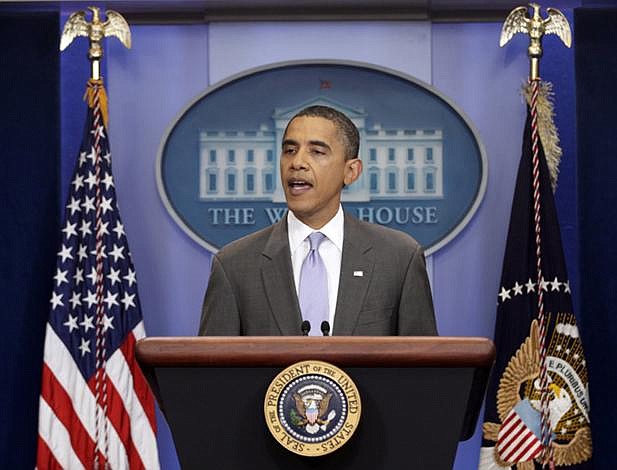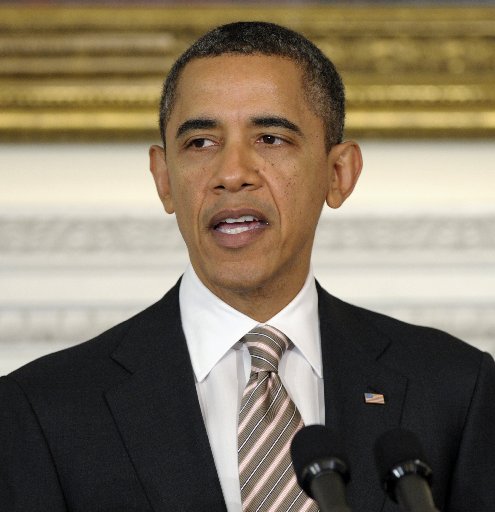Though the political impact on the November presidential election is yet to be clarified, Barack Obama's statement Wednesday in support of same-sex marriage for gay couples clearly puts him on the right side of history. Whatever reason brought him to this moment, Obama, the nation's first black president, may now become equally known as a symbolic champion for the Constitution's 14th amendment, which affirms equal rights under the law for all Americans. His is a position that inevitably will be recognized one day by the U.S. Supreme Court as the law of the land.
At least half of all Americans, polls confirm, already believe the right to same-sex marriage should be accorded to all citizens to guarantee equal access under the law to the storehouse of legal rights conveyed by marriage - whether it be property rights, spousal Social Security benefits, alimony or access to an ICU ward to care for a committed partner or child.
Churches can make their own rules for marriage as a matter of their religious rights and traditions, but the federal government can hardly continue to sanction the legal discrimination that now pervades public laws against same-sex marriage. Just as the march to social justice under the Constitution ultimately brought emancipation of slaves, women's voting rights, civil rights and anti-discrimination laws, and the dismantling of miscegenation laws that barred interracial marriage, so will the legal right to marriage rise for same-sex couples.
Though a constitutional scholar himself, President Obama's path to this epiphany was perhaps as hard as for him as anyone of his generation and older generations. He had said his views on the matter were "evolving," and that was plain. He subscribed first to the right to civil unions to provide legal rights to committed partners, but not to the right of marriage for gay couples. He had refused to enforce the federal Defense of Marriage Act that former President Bill Clinton had signed into law in 1996. He more recently ended the "don't ask, don't tell" era for the military that had allowed, but avoided sanctioning, the rights of gays to serve in the military - and then fixed a policy allowing gays to serve openly.
As he told ABC's Robin Roberts in a hastily scheduled White House interview Wednesday, he had come to question how he would explain to his daughters why marriage was disallowed for the committed gay couples his family knew and respected. He wondered about the effect on "soldiers or airmen or Marines or sailors who are out there fighting on my behalf and yet feel constrained, even now that 'don't ask, don't tell' is gone, because they are not able to commit themselves in a marriage."
"The thing at root that we think about is not only Christ sacrificing himself on our behalf, but it's also the golden rule - you know, treat each other the way you would want to be treated," he said. "And I had to think that's what we try to impart to our kids, and that's what motivates me as president."
"At a certain point," he said, "I've just concluded that, for me personally, it is important for me to go ahead and affirm that I think same-sex couples should be able to get married." Which is to say that at the end of the day, Obama realized that "separate but equal" isn't truly equal when core marriage rights are allowed to some, and denied to others. Otherwise, there would be no controversy about it.
The timing of Obama's statement - following Vice President Joe Biden's similar statement on a national talk-show Sunday, and North Carolina's vote Tuesday in favor of another state constitutional amendment barring same-sex marriage and civil unions - is more superficial than material. Obama, like Mitt Romney, would have been put on the spot about gay marriage in the pending presidential campaign until he issued an unequivocal answer.
Whether the political fall-out will be scant or significant remains to be seen. Certainly Romney will seek political advantage by appealing to traditional evangelical opposition to same-sex marriage. He made that clear in his response to a question about Obama's statement, issuing the harsh rejoinder that he is firmly against civil unions as well as same-sex marriage.
That may resonate with the Republican base, but it's not likely to impress the swing vote of independents, younger voters or a range of other segments of voters who want an open-minded, forward looking, and more inclusive and thoughtful president. The deeper humanity of acknowledging all citizens' rights to full personal relationships is bound to sink in, and to offset the harshness of denial of a basic human right. Beyond that, the more important thing is nonjudgmental compassion and fairness to all committed couples.

